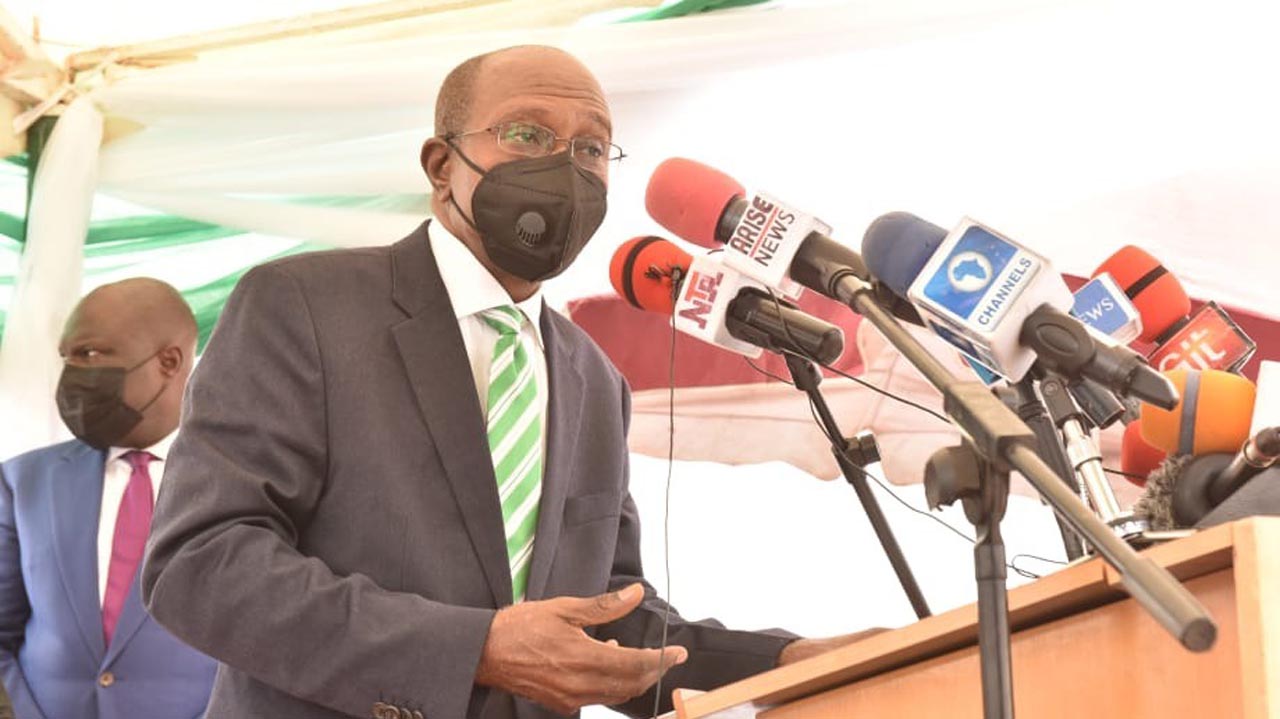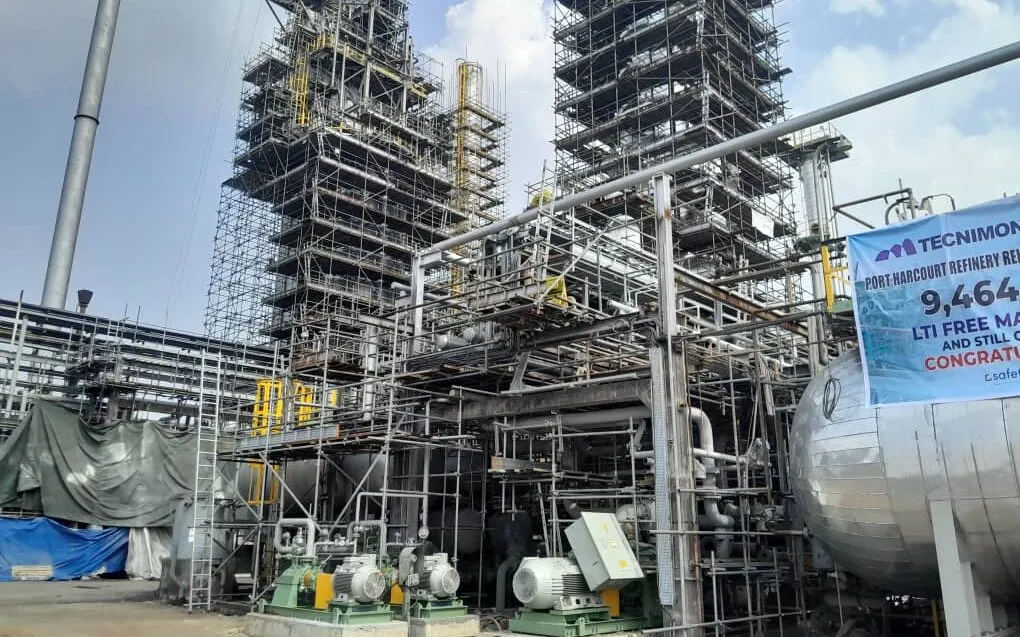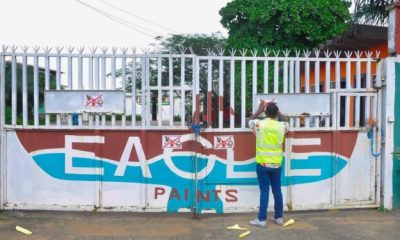Business
CBN issues new guidelines for getting a bank license for new and pending applications

The Central Bank of Nigeria has released guidelines for licensing of banks and other financial institutions.
The apex bank said, “it is for use by individuals and entities applying for licence to operate as banks or other financial institutions.”
The guideline is under the auspices of the Anti-Money Laundering, Combating The Financing of Terrorism, and Countering Proliferation Financing of Weapons of Mass Destruction (AML/CFT/CPF).
According to the central bank, the guidelines will assist promoters of financial institutions to comply with AML/CFT/CPF requirements while applying for operational licences.
The guidelines also provide specified minimum requirements and are expected to be considered by anyone applying for licenses shall.
This is the first time that the central bank has issued tough regulations aligning its application process for banking licenses that take into consideration terror financing, weapons financing, and other insecurity.
This is likely going to make securing a banking license a lot more stringent and rigorous.
Applicants might also need to invest in demonstrating that they understand the risk of money laundering, terrorism financing, and Proliferation Financing.
More than ever, the CBN is going to be scrutinizing the shareholders of potential bank applicants, specifically targeting those who may have had criminal records or ties to crime in the past.
One major cogent observation is that applicants also need to be wary of sanctions, especially from foreign countries and Nigerians.
For example, if fund providers or backers of bank applicants are from countries that have been sanctioned, it could affect the success of their applications.
The scope of the guidelines covers both new and pending applications (including those awaiting final approval).
See below;
What the guideline is saying: While the guidelines provide for items such as objectives, scope, and applicability, requirements for license application, of interest in our assessment are grounds for rejecting applications for a banking license.
a) Failure to demonstrate understanding of the ML/TF/PF risks inherent in the business;
b) Inability to address the AML/CFT/CPF licensing requirements satisfactorily, especially during the capital verification exercise;
c) Misrepresentation of facts and false declaration;
d) Criminal record of a party to the application indicating conviction or any other offence that constitutes financial crime;
e) Opaque ownership structure;
f) Discovery that a party to the application is on the sanctions lists;
i. United Nations Security Council (“UNSC”);
ii. United States Office of Foreign Assets Control (“OFAC”);
iii. Her Majesty’s Treasury, United Kingdom (“HMT”);
iv. European Union (“EU”); v. French Ministry of Economy, Finance and Industry (MINEFI);
vi. Nigerian sanctions list; and
vii. Any other sanctions list as may be advised from time to time
g) Inability to address observed deficiencies in licencing application within specified timeline.
h) Any other condition that the CBN may specify
Business
Naira depreciates to N1,770/$ in parallel market

The Naira yesterday depreciated to N1,770 per dollar in the parallel market from N1,750 per dollar last weekend.
Similarly, the Naira depreciated to N1,675.62 per dollar in the Nigerian Autonomous Foreign Exchange Market, NAFEM.
Data from FMDQ showed that the indicative exchange rate for NAFEM rose to N1,675.62 per dollar from N1,652.62 per dollar last weekend, indicating N23 depreciation for the naira.
The volume of dollars traded (turnover) fell by 55.2 percent to $108.79 million from $243.05 million traded last week Friday.
Consequently, the margin between the parallel market and NAFEM rate widened to N117.38 per dollar from N97.38 per dollar last weekend.
Business
Port Harcourt Refinery begins crude oil processing

The Nigeria National Petroleum Company Limited (NNPCL) has confirmed that the Port Harcourt Refinery in Rivers State has commenced crude oil processing.
The Chief Corporate Communications Officer of the compaanyy, Femi Soneye, broke the news on Tuesday.
Soneye revealed that the refinery will operate at 60 percent capacity and process 60,000bpd.
https://twitter.com/FM_Soneye/status/1861330633831620917?ref_src=twsrc%5Etfw%7Ctwcamp%5Etweetembed%7Ctwterm%5E1861330633831620917%7Ctwgr%5E776845f88f6fa6dd3c70082f4da1ee2632656999%7Ctwcon%5Es1_&ref_url=https%3A%2F%2Fwww.vanguardngr.com%2F2024%2F11%2Fbreaking-port-harcourt-refinery-begins-crude-oil-processing%2F
“Today marks a monumental achievement for Nigeria as the Port Harcourt Refinery officially commences crude oil processing. This groundbreaking milestone signifies a new era of energy independence and economic growth for our nation,” Soneye said on Tuesday.
“Hearty congratulations to President Bola Ahmed Tinubu, the NNPC Board, and the exceptional leadership of GCEO Mele Kyari for their unwavering commitment to this transformative project. Together, we are reshaping Nigeria’s energy future!”
Soneye added that truck loading will commence on Tuesday (today), adding that the NNPCL is also “working tirelessly to bring the Warri Refinery back online soon”.
Business
Nigeria’s GDP rate grew by 3.46% in Q3 2024, says NBS

The National Bureau of Statistics (NBS) says Nigeria’s annual gross domestic product (GDP) grew by 3.46 percent in the third quarter (Q3) of 2024.
The NBS, in its GDP report published on Monday, said the growth rate is higher than the 3.19 percent recorded in Q2 2024.
-

 Business1 week ago
Business1 week agoLagos state government to commence upgrade of major junctions in Ikeja axis, seeks residents’ cooperation
-

 Special Features3 days ago
Special Features3 days agoIyabo Ojo, Brainjotter, Dayo Oketola, Penzaarville, Tomiwa and others to speak at the Bodex Social Media Hangout 5.0
-

 Education1 day ago
Education1 day agoAkwa-Ibom to probe 26 schools as video depicts poor nutrition at boarding house
-

 News1 week ago
News1 week agoNnamdi Emeh: Suspect Facing Charges In Court, Process Independent Of Police Influence
-

 Politics1 week ago
Politics1 week agoAiyedatiwa takes commanding lead in Ondo guber poll after winning 15 of 18 LGAs
-

 Special Features5 days ago
Special Features5 days agoDG ARCON, Dr Olalekan Fadolapo to speak at Bodex social Media Hangout 5.0
-

 Business3 days ago
Business3 days ago31 electricity towers affected as vandals destroy transmission lines in Edo communities
-

 News1 day ago
News1 day agoLagos state government shuts establishments in Gbagada, Ogudu, others over noise pollution, environmental violations


















